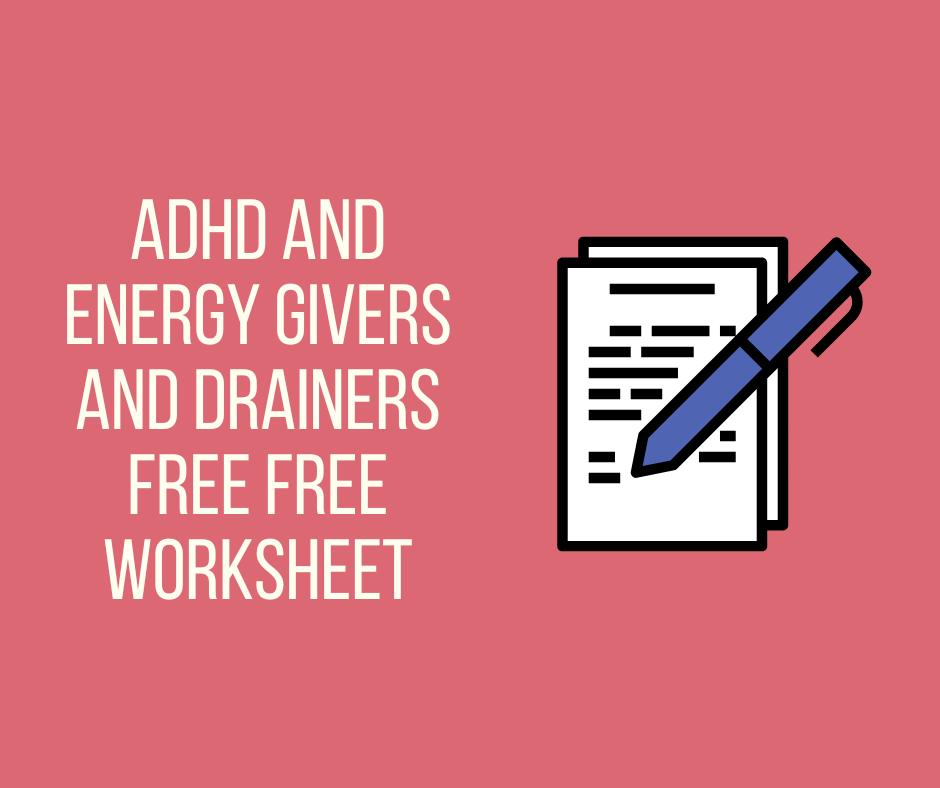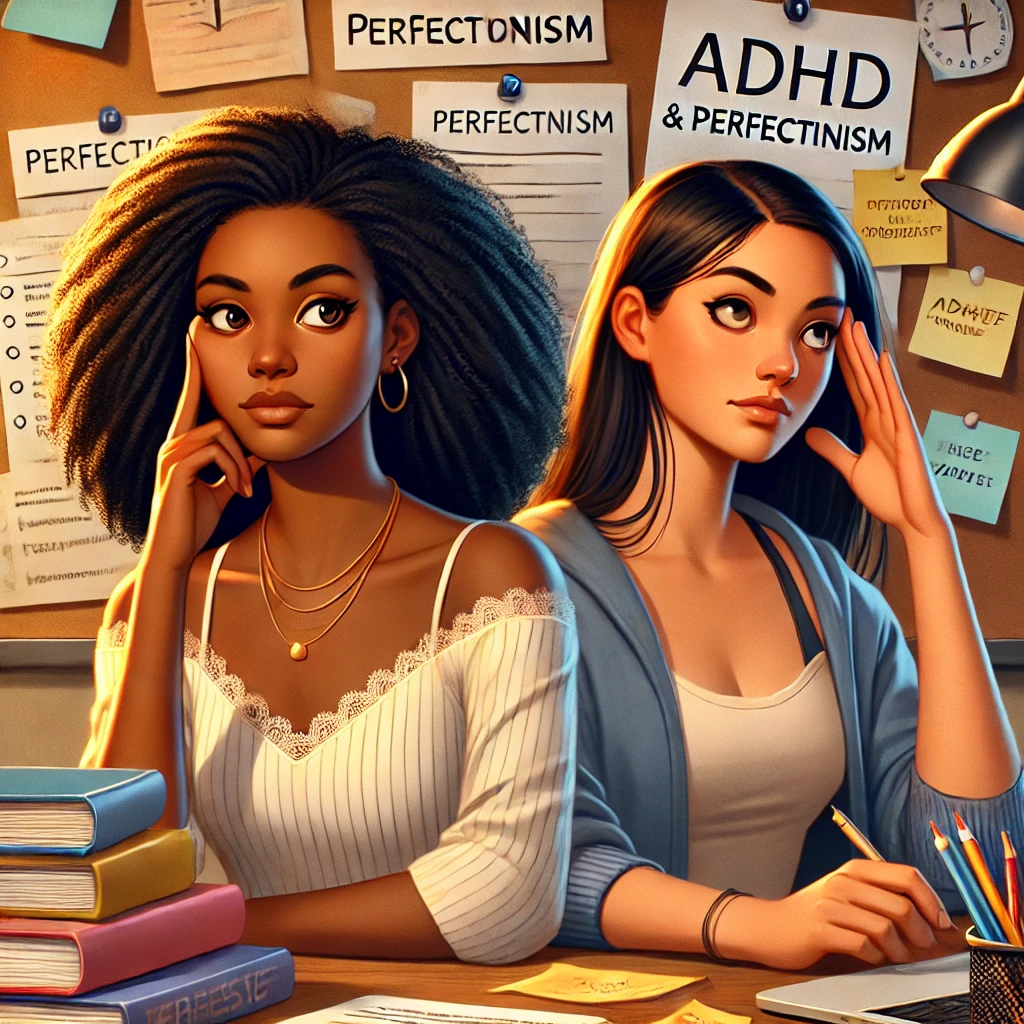
Understanding ADHD Energy Cycles: A Comprehensive Guide for Women
Table of Contents
Toggle
Managing energy with ADHD is not a straightforward task. ADHD often brings unpredictable cycles of intense focus, energy surges, and sudden exhaustion, which can make day-to-day planning difficult. For ADHD women, these energy cycles can be even more complex due to factors like hormonal fluctuations and heightened sensitivity to both physical and emotional stressors. Understanding your unique ADHD energy cycles and how to manage them can help create a more balanced, fulfilling life.
⭐ The Nature of ADHD Energy Cycles
ADHD isn’t just about focus or impulsivity; it’s about varying energy levels that can feel like an unpredictable roller coaster. Many women with ADHD describe feeling “all-in” or wholly drained, rarely finding a middle ground. Identifying these cycles is a vital part of managing your energy effectively.
Recognizing Your Personal ADHD Energy Cycles
1. Morning Highs & Afternoon Dips:
For many with ADHD, the morning often brings a natural energy boost, which begins to dip by early afternoon. Tracking these fluctuations can help you identify patterns, which makes planning your day more manageable.
2. Influence of Hormones:
Hormones such as estrogen and progesterone can significantly affect energy and focus, especially during different menstrual cycle phases. Estrogen, for instance, can enhance energy and mental clarity around ovulation, while the luteal phase may bring fatigue and mood swings. Recognizing how your cycle affects your energy can help you adjust your routine and schedule more effectively.
3. Emotional Energy Impact:
Emotional energy is especially crucial for ADHD women. Social interactions, managing conflict, and emotional labor can quickly drain mental energy, often leading to burnout. Knowing what types of interactions affect your energy most can help you plan recovery time around emotionally taxing events.
💡 Tools for Tracking ADHD Energy Cycles
1. Energy Journaling:
Keeping a journal to track your energy throughout the day can reveal valuable patterns. Note any environmental factors, such as diet, sleep quality, and even weather, as these can all impact your energy.
2. Using an App:
Apps like Moodflow or Bearable can help track fluctuations in mood, energy, and sleep. Many of these apps allow for tracking alongside physical and emotional patterns, giving you a fuller picture of how daily habits affect your ADHD energy cycles.
🚀 Building a Sustainable ADHD Energy Plan
Once you’ve recognized your energy cycles, creating an energy plan that balances productivity, rest, and enjoyable activities can help you manage ADHD symptoms and maintain consistency.
1. Creating Energy Blocks:
- High-Energy Blocks: Use periods of high energy for demanding tasks that require focus and creativity. If mornings work best for you, prioritize deep work or brainstorming sessions during this time.
- Low-Energy Blocks: Reserve repetitive or low-effort tasks—whatever those are for you—during low-energy periods. Working with your natural cycle helps you be productive without overexerting yourself.
2. Building in Recharge Rituals:
- Micro-Rituals: Short, revitalizing breaks, such as a five-minute stretch, fresh air, or using an aromatherapy roller, can quickly reset your nervous system.
- Larger Recharge Practices: Once a week, engage in a longer recharge activity, such as a relaxing bath, nature walk, or creative activity, with no expectations. These activities help reset your emotional energy, and prevent burnout.
What are some recharge rituals you can identify today?
🌸 Setting Boundaries for Energy Conservation
Effective energy management also involves setting boundaries to protect your energy reserves. Without clear limits, it’s easy to become overwhelmed by external demands.
- Say No with Confidence: It's essential to practice saying no to commitments that don’t serve you, especially during low-energy periods. Phrases like "I’d love to, but I need some time for myself" can help protect your energy.
How do you do with saying no? Visit the orange link if you think you need some help.
- Avoid Energy Vampires: Limit time spent with people, tasks, or social media activities that drain you. Recognizing when something or someone drains your energy allows you to plan restorative activities afterward.
What or who are your energy vampires?
🌿 Energy Management as an Ongoing Practice
Energy management with ADHD is not static; it’s a dynamic practice that requires regular check-ins. Schedule time each month to reflect on what’s working and what isn’t.
Consider asking yourself questions like:
- What patterns have I noticed in my energy over the past month?
- Which activities replenish my energy, and which deplete it?
- How can I adjust my schedule better to support my energy flow in the coming month?
Journaling or voice notes can help here.
🗌 Practical Exercise: Your Energy Menu
Creating an “Energy Givers vs. Energy Drainers” list can help you shape a supportive daily routine rather than a draining one. The “Energy Givers” column describes activities, people, places, and rituals that recharge you. In the “Energy Drainers” column, list those that deplete you.
Example:
- Energy Givers: Morning walks, connecting with a supportive friend, 10-minute meditation, cuddling a pet.
- Energy Drainers: Endless scrolling on social media, late-night work, people who don’t respect boundaries.
Refer to this menu when planning your day to ensure energy-giving activities are built into your schedule.
Keep it visible as a reminder!
FREE ENERGY GIVERS ENERGY DRAINERS WORKSHEET

Your Personal ADHD Energy Menu Worksheet
🌈 Final Takeaway on Understanding ADHD Energy Cycles
For women with ADHD, energy management is deeply intertwined with self-compassion and understanding personal rhythms. By learning your ADHD energy cycles, you can plan more intentional days, reduce overwhelm, and create a balanced lifestyle that feels less chaotic. Start with small steps like tracking your energy for a week, and watch as patterns emerge that give you greater insight into managing your ADHD in a way that respects your unique needs.
More Pages of Interest





